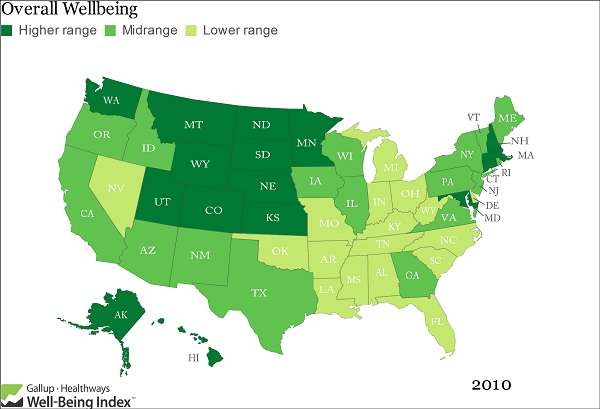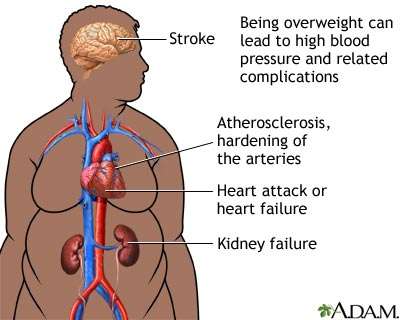Poll Watch: Obesity Levels Lowest in Colorado, Highest in West Virginia
Posted on
The 2010 Gallup Well-Being Index
Colorado, Hawaii, and Utah had the lowest obesity levels in the United States in 2010, although at least 2 in 10 adults were obese in each of these states. West Virginia, Mississippi, and Kentucky had the highest obesity rates, with more than 3 in 10 obese residents living in these states. The prevalence of obesity is nearly eight percentage points higher, on average, in the 11 states with the highest obesity levels compared with the 10 states with the lowest obesity levels — 30.5% vs. 22.6%, respectively.
A very interesting regionalization of obesity levels. I cannot help but think that this is based on culturally-based eating and food choice habits.
Here is the table:

So, what does this mean?
The implications of increasing obesity rates and the associated health outcomes of being obese are extensive for national, state, and local leaders. A recent Gallup study analyzed obesity data from 187 U.S. metro areas and found that if all of them reduced their obesity rates to the Centers for Disease Control and Prevention’s national goal of 15%, the U.S. could save $32.6 billion in healthcare costs annually.
The 2010 state-level findings underscore the connection between high obesity levels and diabetes diagnosis and highlight how widespread this problem is across the country. Obesity and diabetes rates in the U.S. have only worsened since Gallup and Healthways started tracking these conditions daily in January 2008. Strong leadership at the governmental, organizational, and individual level focused on changing health habits, including encouraging more frequent exercise and healthy eating, is needed to begin to reduce these costly and potentially deadly health issues.
There is much work to do to promote healthy diets and more frequent exercise for better health and longevity.




